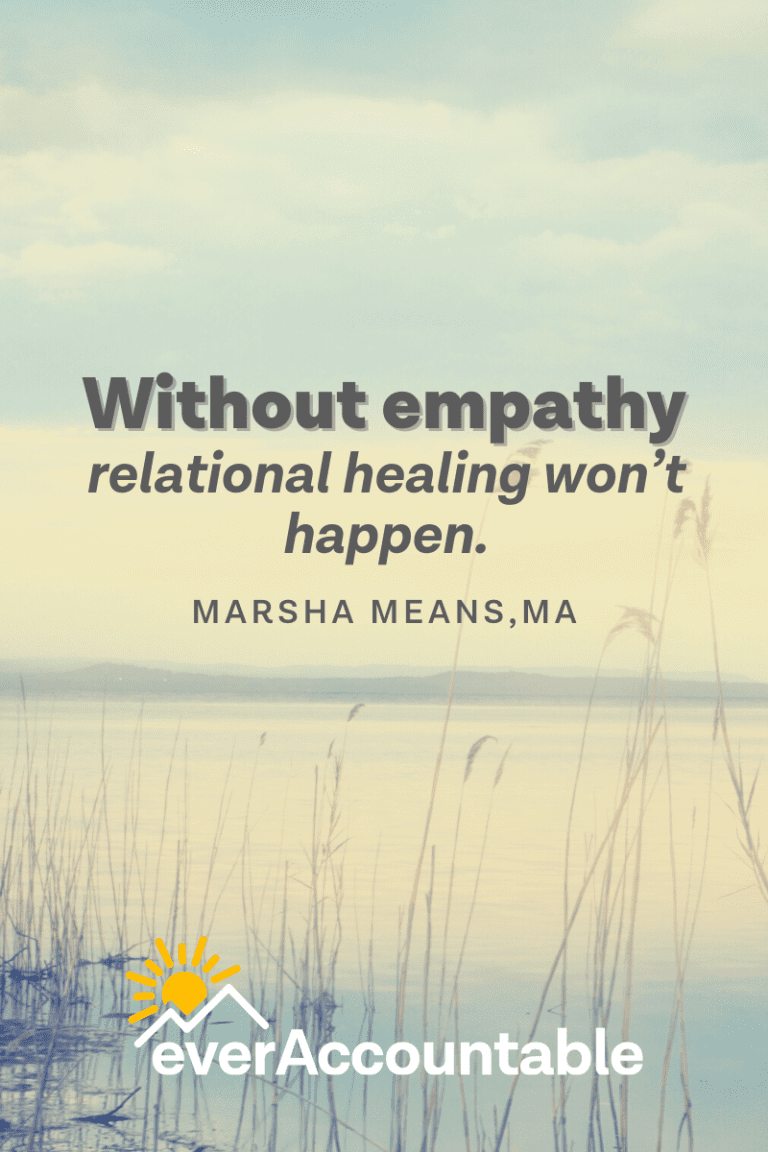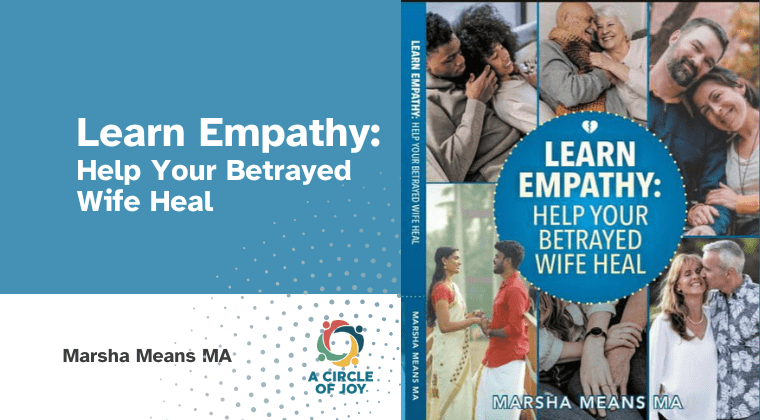Betrayal trauma is excruciating. Betrayal can happen in any kind of close relationship, but intimate betrayal trauma—betrayal by a trusted life partner—is the most life-altering, excruciating betrayal of all.
Intimate betrayal trauma cuts deep because it shatters the foundation of safety and trust we’ve built our lives, marriages, and families on.
When the person we’ve chosen to be vulnerable with—emotionally, physically, financially, and spiritually—violates that trust, it’s not just heartbreak. It shreds our identity, our reality, and skews our self-esteem.
Why Betrayal Hurts So Much
- Attachment bonds and interdependency: We rely on partners not just for love, but for emotional and physical support, income, and often, coparenting. When our bond is broken, our life’s foundation vanishes.
- Mental and emotional confusion: We struggle to reconcile the person we loved with the person who betrayed us. That internal conflict leads to confusion, anxiety, depression, and sometimes, dissociation.
- Total loss of safety: Betrayal trauma disrupts our ability to feel safe not only in the relationship but in life. We become hypervigilant, are afraid to trust anyone, and often withdraw emotionally from life.
If you’re lost in the maze of pain that follows discovery or disclosure, we understand because we’ve been there too.
Your wound may be invisible, but it affects every area of your life. However, with the right support, healing isn’t just possible—it can be transformational.
How do we rebuild our trust in people and regain a sense of emotional safety in the world, and in our intimate relationship, after intimate betrayal trauma?
The answer has two prongs:
- Rebuilding ourselves as individuals following betrayal is our work to do.
- Rebuilding the relationship after betrayal falls on the shoulders of the one who betrayed you.
The Betrayed Partner’s Work
Rebuilding trust and emotional safety after intimate betrayal trauma is one of the most difficult and courageous journeys in life.
It’s not just about repairing a relationship—it’s about reclaiming your sense of reality, worth, and emotional security.
Understanding the Nature of Betrayal Trauma:
It’s not just heartbreak. Betrayal trauma affects the nervous system and it triggers a long list of symptoms like anxiety, hypervigilance, depression, inability to sleep, and fear. In many cases, when healing is delayed, it even damages physical health.
It results in the loss of our safe place in life, because the betrayer was also our home base. That paradox creates deep emotional confusion and a rupture in identity.
Steps Required to Rebuild Ourselves After Betrayal
1. Establish safety first—not reconciliation: To heal as an individual, we must reestablish emotional and physical safety. That may mean a time of separation from the betrayer.
2. Set clear boundaries: Creating a sense of safety also means determining clear boundaries, especially with the betrayer.
3. Find a place to process our pain and trauma, whether that is in a betrayal trauma support group, therapy, retreat, or a treatment center. Healing requires time, space, and above all, a process. I’ve found that healing with a small group of other women going through the same thing can accomplish a lot of healing in a short amount of time.
Trauma symptoms are often severe and result in physical aspects. In such cases, modalities like EMDR, Brainspotting, IFS (Internal Family Systems), and somatic experiencing therapies help process the trauma stored in the body if “talk therapy” doesn’t help you resolve it.
4. Reconnection with Self: Betrayal often destroys our sense of self and our trust in our own intuition. Journaling, art therapy, mindfulness, or nature therapy can help you reclaim your inner compass. Support groups can also play an important role in reconnecting with our identity because the other women serve as mirrors to mirror back to us our worth.
5. Integrating the trauma into our life story: As we advance in our healing, integrating this painful experience into our larger life story can be transformative. Experiencing intimate betrayal trauma changes us. Because we are forced to grow in ways we never anticipated, our eyes are opened to things we may have previously been blind to. Our perspective on life and other people changes. We grow stronger and more resilient. Many of us even change our careers as a result.
The Betrayers To-Do List to Rebuild the Relationship
Rebuilding trust and emotional safety in the relationship after intimate betrayal can only be accomplished by the betrayer, and it requires enormous amounts of empathy.
Unfortunately, a great many now-sober sex addicts tell me they don’t know how to “do” empathy.
Gratefully, empathy can be learned.
That’s hope-giving news for betrayed partners. Because we assume that empathy and the emotional connection it produces will be the byproduct of sexual sobriety, partners are shattered a second time when empathy fails to materialize following sobriety.
But if empathy wasn’t learned in childhood or in some other setting later in life, a sober sex addict doesn’t have it to give.
This results in many betrayed partners choosing divorce, even though their partner is now sober, because connection is our deepest human need.
Human connection is essential for our overall health and well-being. We need connection almost as much as we need food and water. Social connections improve our mental health, reduce stress, and enhance self-esteem.
Our emotional bonds with others are essential for our psychological development and survival. Most brides expect this connection to be a part of marriage. And when it’s not, their pain is agonizing.
But empathy can be learned.
There are several to-do’s on the betrayer’s list, including sobriety, reestablishing safety for your partner, accountability, doing recovery work with a sponsor, transparency and a willingness to sit and answer your partner’s questions, and more.
However, without empathy, relational healing won’t happen. So here, I want to focus on that life-empathy.
Steps to Learning Empathy
- First and foremost: the betrayer must establish and provide on-going consistent safety in the relationship and home for the betrayed partner.
- Becoming self-aware enough to determine and share what you are feeling moment by moment in life. Connection requires that kind of sharing. And it requires making space for your partner’s feelings and responding to them with empathy. This may be the hardest of all the components of empathy.
- Gaining an understanding of “attachment,” then providing attachment in your relationship.
- Learning healthy communication skills, then weaving them with intimacy.
- Learning how to work through conflict in a healthy way in your relationship.
- Learning how to nurture emotional intimacy, day in and day out.
- Learning how to nurture physical intimacy in a healthy way, and waiting until she is ready to reestablish a sexual relationship.
- Committing to working through life’s transitions from a “us” perspective.
Though this can sound daunting to someone who didn’t learn these skills growing up, they can be learned with time, practice, and support. And they can transform an otherwise dead marriage.
- Words like “I’m sorry” mean little without consistent, observable change.
- The betrayer must show transparency, emotional availability, and a willingness to sit with discomfort—not just fix it.
- Couples therapy can be helpful only when both partners are committed to truth and emotional safety, so it isn’t usually the first step to healing.
14-Day Free Trial
Protection From Pornography
Change your habits, change your life: Start our 14-day free trial to help get rid of pornography for good.
Tools to Learn Empathy After Betrayal
Marsha Means, MA personally understands the crushing pain of losing a marriage due to sexual addiction. After many years of helping women heal from betrayal trauma, she noticed an alarming pattern.
Even after the betrayer achieved sobriety, some marriages were still falling apart.
She analyzed her internal survey data and pinpointed a vital problem. The betrayer never learned how to show empathy for the betrayed.
Today, in her golden years, Marsha surprisingly works largely with men in small groups, helping them learn empathy and repair their relationships after achieving sobriety. She says,
“I’ve seen grown men weep as they struggle to learn the language of emotional intimacy. They fear losing their life-partner and family if they don’t achieve the ability to securely attach to them.”
If repairing your relationship is a top priority, Marsha provides two key tools.
- Small group coaching to learn how to develop empathy
- A step-by-step workbook or in-depth course for men or couples (after the partner has achieved sobriety) Learn Empathy: Help Your Betrayed Wife Heal
Marsha also supports Ever Accountable as one recommended tool of recovery. Each purchase of Ever Accountable with her affiliate link helps support her ongoing ministry work as Founder and Director of A Circle of Joy Ministries.






